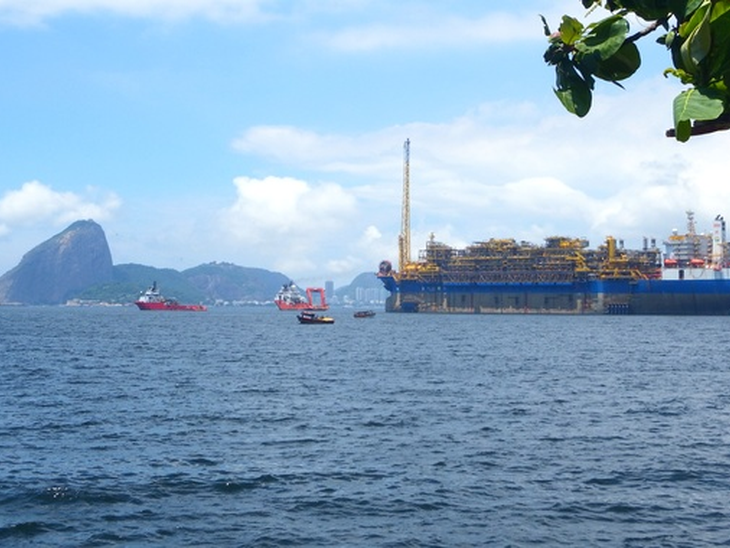
T&B Petroleum/Press Office Firjan

In 2018, more than R $ 57 billion was invested in oil and gas in Brazil, and in the period from 2019 to 2021, on average, there will be an additional R $ 72 billion per year, according to the National Bank for Economic and Social Development ( BNDES). Only in the state of Rio, were produced approximately 70% of the country's oil and 50% of natural gas. Between January and August, in Rio, there were R$13 billion in government participation and more than 70% of refining capacity was used.
The data were broken down by Karine Fragoso, Oil manager, Gas and Naval Firjan in the "Schedule of the Future" event on 17/12, organized by the Strategic Development Permanent Forum of Rio, an agency of the Legislative Assembly of Rio de Janeiro state (Alerj). Karine presented the data of the document "Potential of the Petroleum, Natural Gas and Naval Gas Markets for Rio de Janeiro", edited by the management last month.
Investments in the oil and gas (P & G) market were one of the highlights, as Rio will remain the main attraction in the coming years. "Facilities are planned for 16 offshore production systems and the start of more than 14 offshore production projects by 2023," said Karine, who is also general superintendent of the National Petroleum Industry Organization (ONIP).
Priority guidelines
With the strengthening of this productive chain, it is possible to have a mature market, with several producers and consumers and greater competitiveness, according to Karine. On the other hand, she stressed that it is necessary to take into account that the world is moving towards reducing carbon emissions, expanding the supply of renewable energy.
"Global demand for energy is expected to grow by 30% over the next 20 years, but we have to invest in more sustainable energy and natural gas is the main route to this transition, in addition to investments in technology development by the oil and gas market, but are capable of being used by other segments of the economy. "
At the end of December, former President Michel Temer issued Decree No. 9,616 / 2018, renewing the regulatory framework for transportation and processing, storage, liquefaction, regasification and commercialization of natural gas. "This is already an important step towards strengthening the gas market in the country," added Karine.
In addition, Firjan listed the priority guidelines to further leverage the development of the market. Some of these points are: the internalization of the Repetro with correction of attractiveness criterion, strengthening the productive chain present in the state; the creation of favorable conditions to increase the recovery factor of mature fields with increased production; the strengthening of the natural gas market, at the federal level, with the necessary flexibility for a scenario of several producers and consumers; and the construction and feasibility of a master plan for Rio that will increase the supply of terrestrial and maritime infrastructure to support exploration and production, refining, transportation and distribution operations.
The event in Alerj brought together newly elected politicians and representatives of the productive sector and segments of civil society to discuss topics considered strategic for the resumption of economic growth in Rio de Janeiro.

Contact us